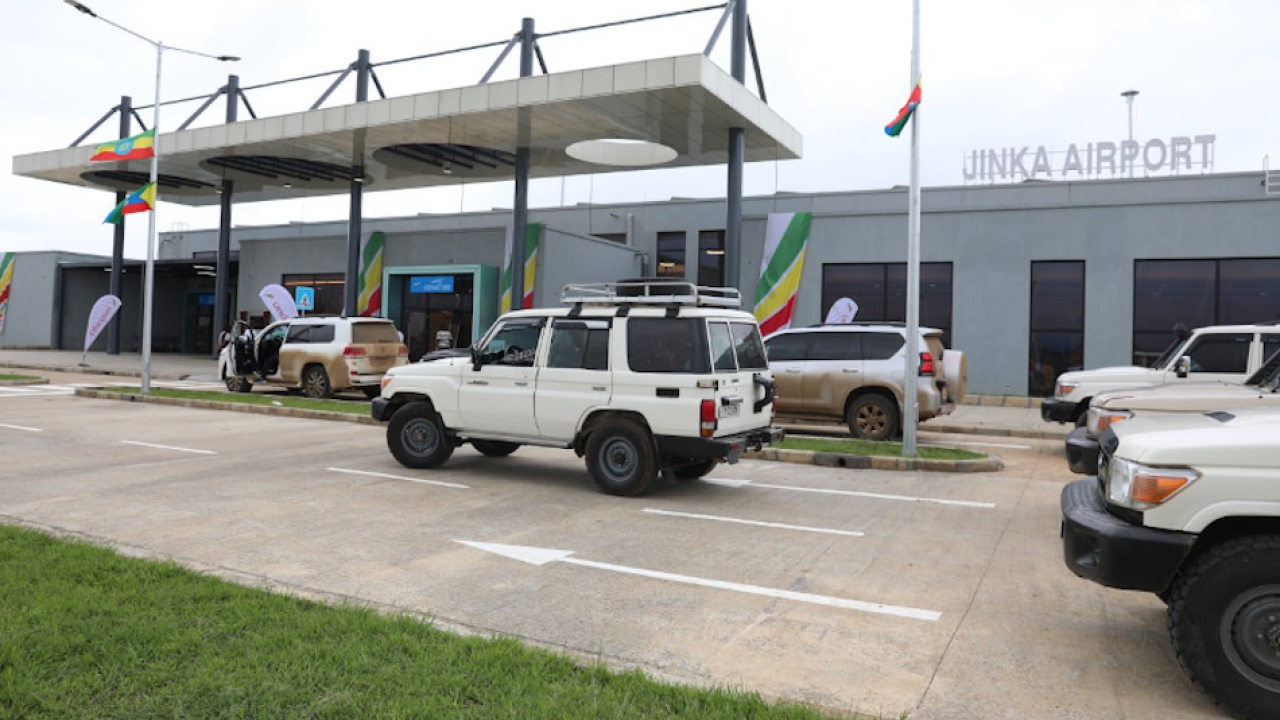Row brews over privatisation plans
Controversy surrounds the privatisation of some Nigerian airports. Chukwu Emeke has been looking into the situation.

Shortly after taking office as Nigeria’s Minister of State for Aviation, Hadi Sirika confirmed the federal government’s plan to allow privatised services at four of the country’s major airports.
The facilities concerned are Nnamdi Azikiwe International Airport (Abuja), Murtala Muhammed International Airport (Lagos), Mallam Aminu Kano International Airport (Kano) and Port Harcourt International Airport (Port Harcourt).
The announcement has sparked controversy among industry stakeholders, with some backing the idea and others demanding clarification of government intentions in the light of previous failed privatisation experiences.
Typical of the various points of view were Captain Nogie Megisson, chairman of Airline Operators of Nigeria (AON), who believed airport concession would increase operational efficiency and profitability and create jobs. However, Dr Harold Demuren, former director general of Nigerian Civil Aviation Authority (NCAA), advised the government to be honest with workers’ unions in negotiation processes, as this issue had been a challenge in previous arrangements. Meanwhile, Group Captain John Ojukutu (Rtd), former commandant of the Lagos airport, said the airside should be a no-go area in any concession arrangement.
Back in November 2017, when Professor Yemi Osinbajo, the country’s vice-president, first announced that the government had approved the privatisation decision, the various aviation workers’ unions held a press conference in Lagos, kicking against the plan.
Secretaries of the National Union of Air Transport Employees (NUATE), Air Transport Services Senior Staff Association of Nigeria (ATSSSAN) and Nigerian Union of Pensioners (NUP) jointly called on the government to display more transparency and incorporate manpower and legal liabilities into any plan.
They emphasised the need to include in the plan the fate of 6,285 Federal Airports Authority of Nigeria (FAAN) personnel and more than 4,124 pensioners.
The unions revealed in a joint statement that there were currently around 64 concession litigations against FAAN, all pending in various courts, arising from alleged fraudulent operations, faulty and irregular agreements, negation/violation of agreements, failure to perform according to agreements, and so forth.
The unions also raised a litany of questions at the forum. “What will be the fate of 18 other airports that depend largely on financial survival/support of the four major airports listed for concession? What will happen to the existing liabilities? Will they be attached to the concession?
“Are current employees to be transferred and or redeployed from the sector? If so, are there limitations to be included in the agreement on the numbers that may be laid off or declared redundant?”
The Nigerian Government had, in 2013, secured a $500 million loan from the Chinese bank for its nationwide airports remodelling project. The unions are unhappy that FAAN was instructed to begin defrayment of the loan, even though neither the company’s management nor its personnel were consulted before incurring the loan.
Nigeria currently has five international and 22 domestic airports. On a yearly basis, about 15 million people fly in and out of the country. Minister Sirika says the government believes the country can accommodate between “70 and 100 million passengers annually, within the next five years, if the right things are put in place”.
Stakeholder apprehension over the government’s concession plan stems from past experience. There is, for instance, a pending dispute between the government and Bi-Courtney Aviation Services Limited (BASL), on the concession of the Murtala Muhammed Airport Terminal Two (MMA2) in Lagos.
The MMA2 terminal was built and is currently operated by BASL but the tenure spelt out in the concession agreement and the facilities involved are still mired in controversy and have been the subject of pending litigations. FAAN argues that the authentic agreement document limits the duration of the concession to 12 years and that the airport’s General Aviation Terminal did not form part of the concession, whereas BASL claims the tenure is 36 years and that the GAT was part of the deal.
Stay up to date
Subscribe to the free Times Aerospace newsletter and receive the latest content every week. We'll never share your email address.

